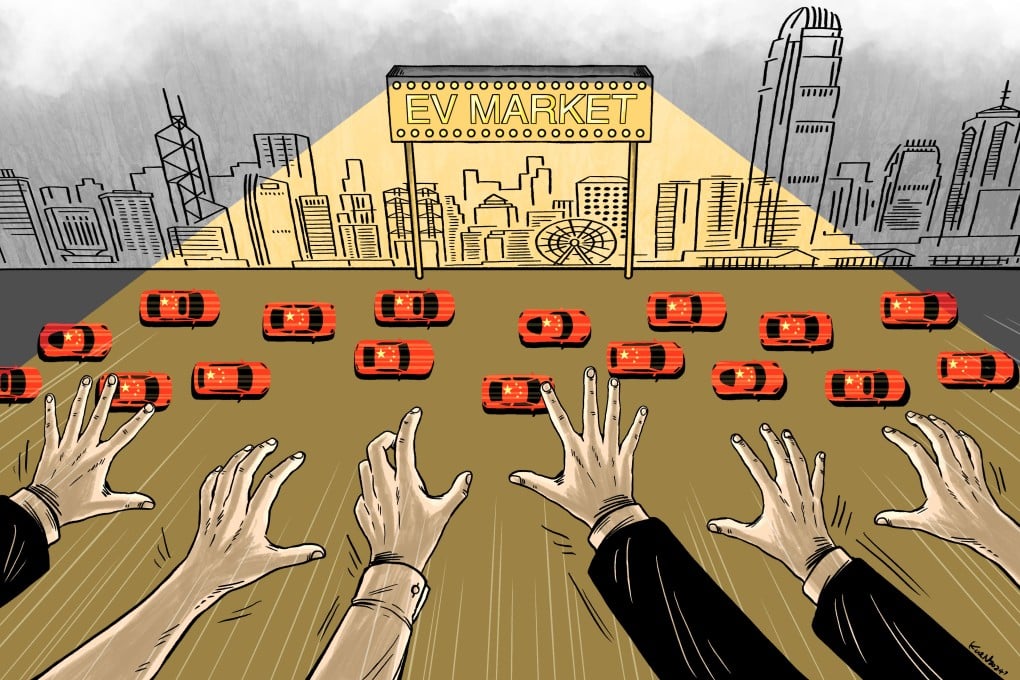Advertisement
Hong Kong is emerging as a key market and testing ground for Chinese EV makers. Here’s why
- Hongkongers shed their disdain for made-in-China EVs, while mainland carmakers use the opportunity to fine-tune their products to broaden their global appeal
Reading Time:6 minutes
Why you can trust SCMP
14

Angus Au had set his sights on a Tesla model Y. But the 27-year-old Hongkonger changed his mind after test driving the Chinese-made MG ZS electric vehicle (EV).
He shelled out HK$250,000 (US$32,000) for his first EV after trading in his grandmother’s 20-year-old Toyota Sienta and availing of the government’s “one-for-one replacement” scheme, a subsidy for car owners to switch to these zero-emission vehicles.
“It doesn’t matter so much to me [that it is a Chinese brand],” said Au. “Even the Teslas you buy in Hong Kong are made in Shanghai. I look at the product, rather than where it comes from.”
Advertisement
The market share of Chinese EV brands in Hong Kong nearly doubled to 30 per cent in June, from 16 per cent a year ago, amid an influx of carmakers from the mainland, according to London-based car distributor Inchcape, which compiled the figures based on Transport Department statistics.
A total of 31 EV models from nine Chinese companies have been approved for sale by the Transport Department as of July 19, with prices ranging from HK$160,377 for Hozon New Energy Automobile’s Neta AYA Lite five-seater SUV to HK$619,190 for the SAIC Maxus Mifa 9 Premium multipurpose vehicle (MPV).
Advertisement
Others such as Xpeng and GAC Aion have opened showrooms over the past few months, eyeing a larger share of the market where some 38,000 new cars were registered last year. Hong Kong’s right-hand drive makes the city a good testing ground for Chinese EV brands that want to expand into other international and Asia-Pacific markets that follow the same driving system.
Advertisement
Select Voice
Select Speed
1.00x